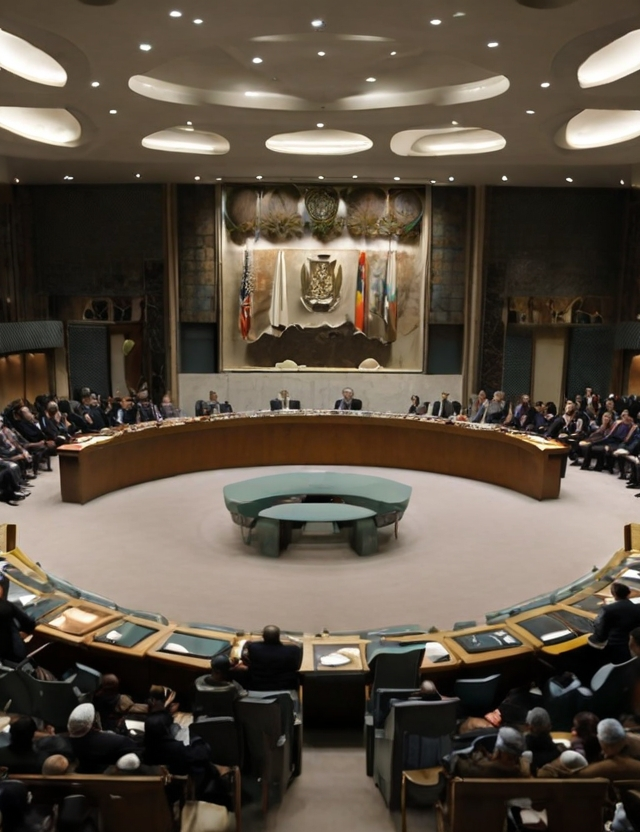Amid escalating tensions and violence in the Gaza Strip, the United States has taken a significant step by proposing a resolution at the United Nations Security Council to oppose the recent assault on Rafah and advocate for a temporary ceasefire in the region. This move comes in response to the worsening humanitarian crisis and the urgent need for de-escalation to prevent further loss of life and destruction.
Understanding the Rafah Assault
The Rafah assault, which has garnered international attention, involves a series of military actions targeting civilian areas in the Gaza Strip. Reports indicate extensive damage to infrastructure and a significant number of civilian casualties, including women and children. The situation has raised concerns about human rights violations and the disproportionate use of force.
Significance of Temporary Ceasefires
Temporary ceasefires play a crucial role in providing relief to affected populations and facilitating humanitarian assistance. They offer a brief window of opportunity for civilians to access essential services, such as medical care and food supplies, and allow humanitarian organizations to operate safely in conflict zones. Moreover, ceasefires can pave the way for dialogue and negotiations to address underlying grievances and seek long-term solutions to conflicts.
US Stance and Proposal
The United States, in its proposal to the UN Security Council, emphasizes the need to halt the violence in Rafah and uphold the principles of international law. It calls for an immediate ceasefire to prevent further bloodshed and create space for diplomatic efforts aimed at resolving the underlying issues fueling the conflict. Additionally, the proposal seeks to mobilize support for humanitarian aid to alleviate the suffering of civilians affected by the violence.
Rationale for Opposition to Rafah Assault
Opposition to the Rafah assault centers on the indiscriminate targeting of civilian areas and the disproportionate use of force by the parties involved. Such actions not only violate international humanitarian law but also exacerbate tensions and hinder efforts to achieve a peaceful resolution to the conflict. The UN Security Council’s condemnation of the assault sends a clear message that such violations will not be tolerated and underscores the importance of upholding human rights principles.
Supporting the Ceasefire Initiative
Backing the temporary ceasefire initiative is essential to providing relief to civilians caught in the crossfire and creating an environment conducive to dialogue and negotiations. It demonstrates a commitment to the principles of peace and stability in the region and sends a signal of solidarity with the people of Gaza who are enduring immense suffering. Moreover, it opens up opportunities for diplomatic engagement to address the root causes of the conflict and chart a path towards sustainable peace.
Challenges and Considerations
Implementing a temporary ceasefire in Gaza is not without its challenges, given the complex dynamics and entrenched interests at play. Ensuring compliance with the ceasefire agreement and preventing violations requires robust monitoring mechanisms and the cooperation of all parties involved. Moreover, addressing the underlying grievances and building trust between the conflicting parties are essential for sustaining peace in the long run.
International Response and Implications
The international community’s response to the US proposal will be crucial in shaping the outcome of the conflict in Gaza. Active engagement and support from key stakeholders, including regional powers and humanitarian organizations, are necessary to translate the proposed ceasefire into tangible action on the ground. Furthermore, the involvement of the UN Security Council underscores the gravity of the situation and the collective responsibility to address it.
Conclusion
In conclusion, the US proposal to the UN Security Council reflects a concerted effort to address the escalating violence in Gaza and promote peace and stability in the region. By opposing the Rafah assault and advocating for a temporary ceasefire, the international community reaffirms its commitment to upholding human rights and preventing further bloodshed. Moving forward, sustained diplomatic efforts and international cooperation will be essential to resolving the underlying conflicts and rebuilding communities affected by the violence.
FAQs
- Why is the US proposing a resolution at the UN Security Council?
- The US aims to address the escalating violence in Gaza and mobilize international support for a temporary ceasefire to alleviate the humanitarian crisis.
- What are the challenges in implementing a ceasefire in Gaza?
- Challenges include ensuring compliance with the agreement, preventing violations, and addressing underlying grievances between conflicting parties.
- How does the proposal benefit civilians in Gaza?
- The proposal provides relief to civilians by halting the violence, facilitating humanitarian aid, and creating space for dialogue and negotiations.
- What role does the UN Security Council play in resolving conflicts?
- The UN Security Council plays a central role in maintaining international peace and security by addressing conflicts and promoting diplomatic solutions.
- What are the long-term implications of the US proposal?
- The proposal sets a precedent for international intervention in conflicts and underscores the importance of upholding human rights principles in conflict resolution efforts.



